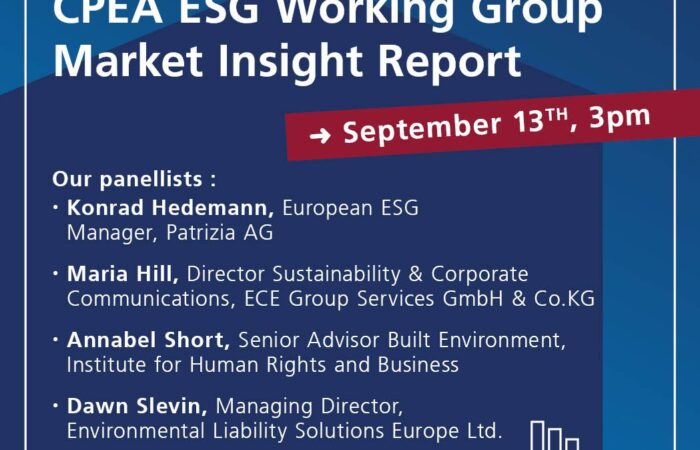Following a lengthy public consultation, the US Securities Exchange Commission (SEC) adopted its proposal for corporate disclosure rules with amendments on 6 March 2024 and published the final rules in the Federal Register entitled ‘The Enhancement and Standardization of Climate-Related Disclosures for Investors’. ELS Europe’s news article briefly addresses the potential negative effects of the post-adoption petitions by US entities resulting in the SEC’s Stay Order of 4 April 2024.
The SEC disclosure rules would promote transparency on climate-related risks and opportunities and incentivize the future-proofing of the US economy and people from catastrophic climate change, which has already manifested in extreme floods and widespread fires over the past number of years.
The climate-related disclosure rules would apply to a registrant with US Exchange Act reporting obligations, i.e. US listed companies offering securities for sale to the public. US listed companies have by a long shot the largest market capitalization globally at approximately USD 50 trillion – by comparison Chinese listed companies have a market capitalization of approximately USD 10 trillion. The SEC disclosure rules represent not only a US national breakthrough in future-proofing the US economy and people from catastrophic climate change, but these rules would also carry incontrovertible import on the global front. US listed companies and other US companies that operate in jurisdictions outside the United States would be subject to international jurisdictions’ disclosure requirements. The SEC’s disclosure rules would potentially have a two-way positive impact at an international level: US listed companies will be better prepared to report to those jurisdictions’ disclosure rules; and US companies may positively influence those jurisdictions’ that do not yet enforce such valid and fair disclosure rules.
The spirit of the SEC disclosure rules – to protect the interests of US registered entities and thereby the US economy – is particularly noteworthy. As examples, SEC rules explicitly allow for extended safeguards including a safe-harbor for forward looking climate-related information in transition plans, scenario analysis, use of internal carbon price, and targets and goals. Furthermore the SEC’s requirement to tag qualitative and quantitative disclosures using inline XBRL to enable search and retrieval, while not a global first, is a remarkable deployment of good data technology. SEC’s consultation commenced in 2022 and provided adequate time and openness for entities to engage constructively. Indeed, the SEC took a huge step back from a comprehensive greenhouse gas (GHG) disclosure rule when after its consultation (disappointingly) less prescriptive rules were adopted that eliminated disclosure of Scope 3 GHG emissions. In this context, the thirty-one petitions that quickly mounted from the day of adoption of the revised SEC disclosure rules is surprising.
The SEC has stated it will vigorously defend the disclosure rules and views the judicial review as a means to avoid potential regulatory uncertainty if registrants were to become subject to the final rules’ requirements during the pendency of the challenges. In other words the SEC’s Stay Order aims to ensure that the rules are watertight and the petitioners comply in full.
Meanwhile on the international scene, investors, companies and markets widely recognize that a company’s financial performance may be impacted in many ways by internal and external events not limited to climate change, but also environmental degradation, biodiversity loss, resource constraints and numerous social aspects. This awareness and knowledge has led to the rest of the world rapidly devising and implementing sustainability-related disclosure rules fit for their jurisdictions. In some jurisdictions the disclosure rules apply a comprehensive set of environmental and social objectives across corporate, and prudential entities, listed and unlisted. The EU’s Corporate Sustainability Reporting Directive sustainability-related disclosure rules commenced this January and will apply to 50,000 companies when fully implemented. China’s three main Stock Exchanges Shanghai, Shenzhen and Beijing have each drafted ESG Reporting Guidelines for listed companies that come into force for Fiscal Year 2025. India has enhanced its Business Responsibility and Sustainability Reporting (BRSR) with ‘BRSR Core’ for listed company reporting obligations which came into force for Fiscal Years 2023/2024.
Time is of the essence when combating climate change and its effects. Delays to implementation of the SEC’s climate-related disclosure rules will potentially have a deep and wide negative implication for US companies, US citizens, global consumers of US goods and services, as well as global consumers of US sustainability-related data.
The events surrounding the delayed adoption of The Enhancement and Standardization of Climate-Related Disclosures for Investors, begs the question: what have the petitioners and those they represent got against fair and standardized transparency on climate-related risks and opportunities?
This Article was prepared by Dawn Slevin, 8 April 2024. It reflects the authors own opinions.
Source of Market Capitalization values: World Federation of Exchanges




